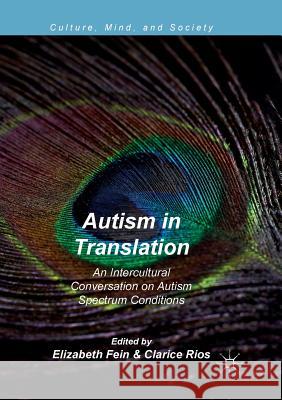Autism in Translation: An Intercultural Conversation on Autism Spectrum Conditions » książka
topmenu
Autism in Translation: An Intercultural Conversation on Autism Spectrum Conditions
ISBN-13: 9783030066321 / Angielski / Miękka / 2018 / 304 str.
Kategorie:
Kategorie BISAC:
Wydawca:
Palgrave MacMillan
Seria wydawnicza:
Język:
Angielski
ISBN-13:
9783030066321
Rok wydania:
2018
Wydanie:
Softcover Repri
Numer serii:
000288079
Ilość stron:
304
Waga:
0.38 kg
Wymiary:
21.01 x 14.81 x 1.73
Oprawa:
Miękka
Wolumenów:
01
Dodatkowe informacje:
Wydanie ilustrowane











